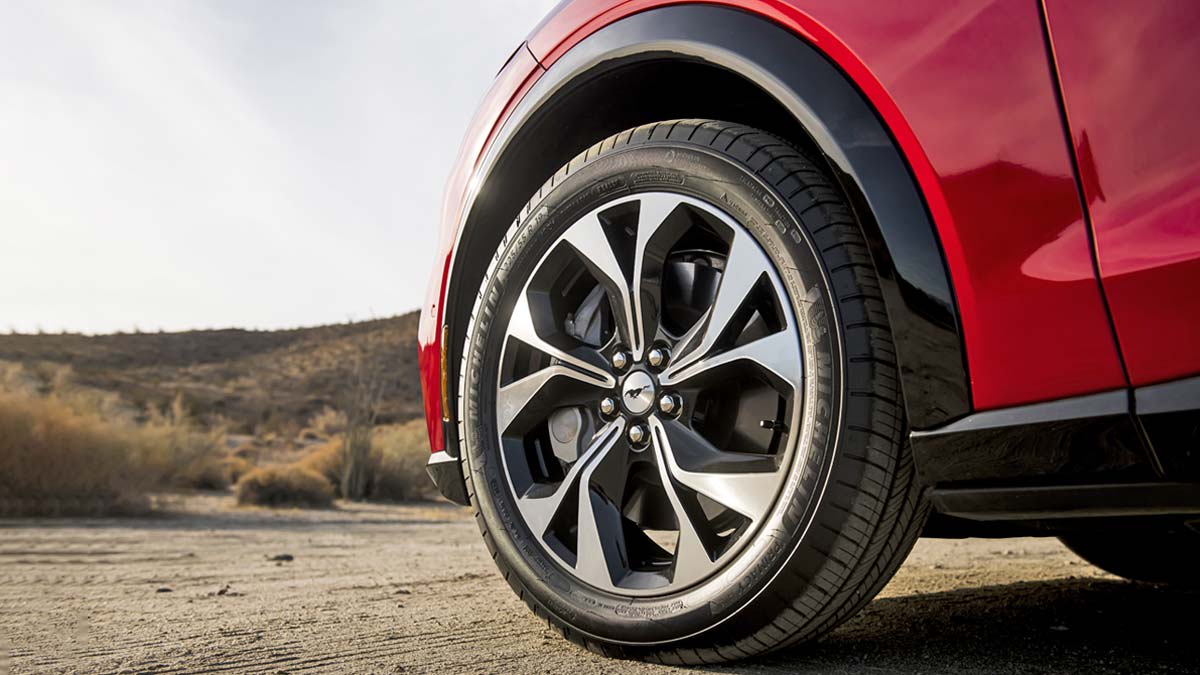“Developing a tire specifically for electric vehicles requires a number of considerations you do not encounter when working with internal combustion engines,” said Ian Coke, chief technical officer at Pirelli North America. “Electric vehicles are heavier, have more powerful and faster acceleration off the line, and require lower rolling resistance.”
Rolling resistance refers to the friction when a tire rotates, and it has a direct affect on the range the vehicle can travel. The powertrain in an electric vehicle is very efficient compared with a traditional engine. It’s just an electric motor spinning a wheel, and because of that, the rolling resistance becomes even more important in these cars. That resistance accounts for about 16 percent of the total energy used.
Another factor is road noise. EVs are known for being very quiet vehicles, and EV-specific tires are designed to minimize road noise. Using a standard tire on an EV might result in a louder in-cabin experience than if you used the same tire on a gas-powered car, where tire noise would be masked by engine and wind noise.
Tire maintenance is about the same with an EV as with a gas-powered car. You should check your tires each month to make sure that they’re properly inflated. Also, inspect for cuts, cracking, and any other type of damage. One area to pay particular attention to is tread depth, because EVs tend to wear tires quicker due to their heavier weight.
Source link
-
-
-
-
-
-
-
-
